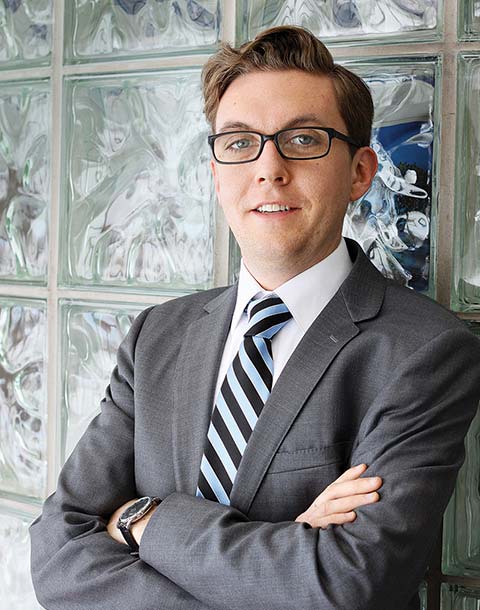For Andrew White, there’s nothing cooler than being an entrepreneur – unless it’s being a cutting-edge, green entrepreneur. White’s startup, Char Technologies, cleans bio-gas – the naturally occurring gas emitted from any decomposing organic waste – by manipulating the chemistry of the waste itself. It even turns the byproduct into a useful, soil-restoring fertilizer. It’s about as zero-emissions a process as you can get.
“It takes me back to first year in chemical engineering,” says White (BASc 2008, MASc 2010). “One of the important lessons that we learned was to avoid creating solutions where further down the pipe it creates another problem.”
While completing his master’s degree, White toured a renewable-energy plant, where he discovered that bio-gas isn’t 100 per cent clean and green. Like natural gas, it contains the toxin hydrogen sulphide. And, as with natural gas, the sulphur needs to be scrubbed out before the gas is burned, or it will not only corrode engines and furnaces, but will fill the air with sulphur dioxide – a major contributor to acid rain, and a pollutant linked to respiratory disease.
“Viewing waste as a resource, trying to drive towards zero waste, is really important to me,” says White. So he began looking for another way to treat bio-gas – and found it. The original organic waste is first digested to produce bio-gas and anaerobic digestate (a compost-like material traditionally treated as a waste byproduct). White cooks this digestate in big drums, deprived of oxygen. Like a campfire covered for the night, the slow burn turns the waste into charcoal or, more specifically, bio-char. Controlling the temperature also sets off chemical reactions that make it extraordinarily porous. When the untreated bio-gas is passed through this bio-char, the hydrogen sulphide sticks to any free surface. The result – sulphur-infused bio-char, which White has trademarked as SulfaChar – is an effective fertilizer.
“The bio-gas industry is a way to capture methane that would be otherwise lost to the atmosphere, where it’s 22 times worse than carbon dioxide for global warming,” says White. “And it’s a way to do something useful with waste. It’s not quite as sexy to talk about manure as it is to talk about shiny solar panels, but there are some great incentives to build this industry.”
Watch a video of Andrew White talking about his process for cleaning bio-gas
Recent Posts
For Greener Buildings, We Need to Rethink How We Construct Them
To meet its pledge to be carbon neutral by 2050, Canada needs to cut emissions from the construction industry. Architecture prof Kelly Doran has ideas
U of T’s 197th Birthday Quiz
Test your knowledge of all things U of T in honour of the university’s 197th anniversary on March 15!
Are Cold Plunges Good for You?
Research suggests they are, in three ways




